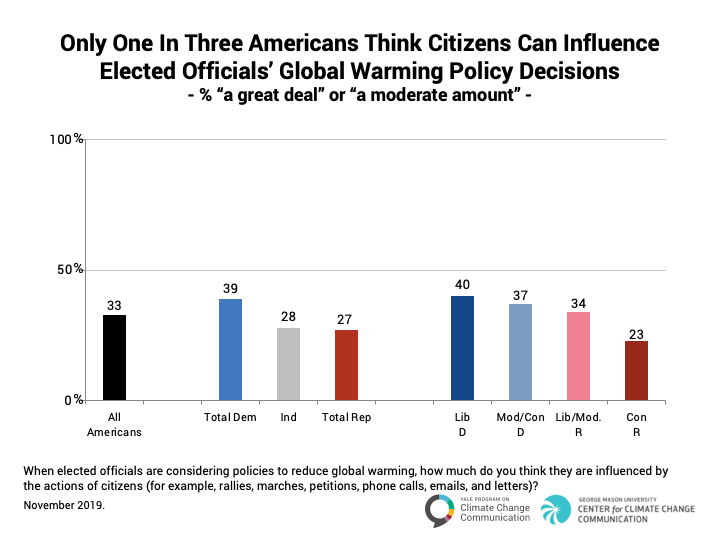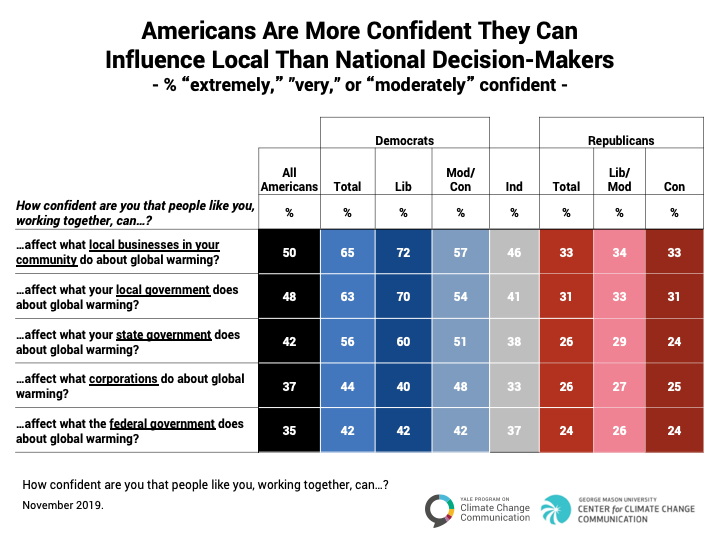Report · Feb 18, 2020
Climate Activism: Beliefs, Attitudes, and Behaviors – November 2019
By Anthony Leiserowitz, Edward Maibach, Seth Rosenthal, John Kotcher, Parrish Bergquist, Abel Gustafson, Matthew Ballew and Matthew Goldberg
Filed under: Behaviors & Actions, Beliefs & Attitudes and Policy & Politics
2. Activism Efficacy
2.1. Only one in three Americans think citizens can influence elected officials’ global warming policy decisions.
Only one in three registered voters (33%) think elected officials are influenced by the advocacy actions of citizens (for example, rallies, marches, petitions, phone calls, etc.) when considering policies to reduce global warming. No political subgroup has a majority of members who think citizens influence elected officials with regard to climate policies. Liberal Democrats are the most likely to think so (40%) while conservative Republicans are the least likely (23%).
2.2. Americans are more confident they can influence local than national decision-makers.
Perceived collective efficacy regarding global warming – the belief that like-minded citizens can work together to influence the global warming actions of government and business leaders – is an important motivator for individuals to take collective action.Bandura, A. (2000). Exercise of human agency through collective efficacy. Current Directions in Psychological Science, 9, 75-78. doi:10.1111/1467-8721.00064 Half of Americans (50%) are at least “moderately confident” that people like them, working together, can affect what local businesses do about global warming, and 48% are confident that people can affect what their local government does. Fewer are confident that people can influence what their state government (42%), corporations (37%), or the federal government (35%) do about global warming.
Democrats are more likely than Independents or Republicans to express confidence that people can affect what government and business do about global warming.

